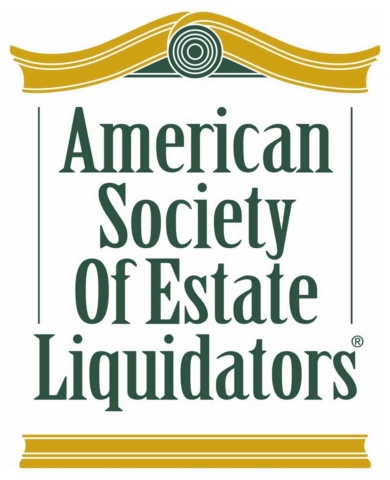
WISE OWL ESTATE SALES
“A Professional ASEL Associate”
Why should I have an on-site estate sale?
Having an estate sale on-site will bring in more money from the sale of personal property than by any other means of liquidation. Your items are more appealing and sell better when they are displayed in an appropriate atmosphere. An on-site sale offers the convenience of no packing and no moving, both of which can result in damage to merchandise.
Why should I hire an estate sale agent?
An estate sale agent serves as the overseer of the sale of all items included and will work to bring in collectors, dealers and buyers willing to pay the best prices. Identification of and placing a value on collectibles, antiques, and household items, coupled with a knowledge of the best fair market value for merchandise takes study and experience. It involves continual research. In short, it takes a full-time professional who specializes in this work. The extra money an experienced agent can realize for you from just a few items, priced right, can sometimes pay the entire commission charged for the sale.
How much will it cost to have an agent do my sale?
It will cost nothing out of pocket. Estate sales professionals usually charge a commission based on the size of the sale, how much work will be involved to prepare and run the sale and whether or not there will be travel expenses should the sale be located in a city outside the normal range of operation. A comfortable range for commission on a sale is between 25% and 45% and may be negotiated between owner and agent. Other than the commission, the owner’s only expenses are for the advertising and any special permits or licenses required. Owner’s expenses will be deducted from the sales proceeds.
When are estate sales usually held?
The sale itself is usually conducted on Friday and Saturday. However each sale is unique and the hours and days are determined accordingly.
How long does it take to prepare a sale?
A good estate sale professional will be able to keep preparation time to a minimum, usually one week for an average size sale. Time will be given to searching the house for any unusual and/or valuable items which will need buyers whose interests lay in those special areas and to be certain that everything is organized and displayed appropriately before the sale begins.
What does an estate sale agent do to protect my property?
An agent will secure small, valuable items into locking display cases and assign a staff member to watch those items and to assist customers in selecting them. Staff will be directed to a station themselves throughout the house where they can observe the customers and watch the merchandise to prevent theft. They will direct customers to exit only through the designated exit. Agent will limit the number of customers allowed inside the house to a controllable number. Should any customer be observed behaving in a manner or that could cause damage to any item of personal property or to the house or yard, agent will promptly escort the customer out.
How does the agent arrive at the prices for my items?
Pricing the merchandise involves many factors. A good estate liquidator relies on an extensive reference library of antique and collectible price guides, auction records, on-line reference sites and catalogues. In case of very unusual and/or valuable items agent will seek the advice of a professional with relevant experience. Pricing requires thoughtful examination, proper research and some current market value of many different kinds of items. The agent must consider desirability, quantity, quality and location in figuring out a price.
What is done with the things that do not sell?
At the completion of the sale, the remaining items are disposed of per arrangement made ahead of time between the owner and the agent. In cases where items are donated to a charity, agent will supply, to the owner, a receipt for tax deduction purposes.
Do I have to sign a contract?
Most agents have a commission agreement which acts as a protection for both the owner and himself. This agreement covers all aspects of what can be expected from the agent and what is required of the owner. It affords the owner/s an opportunity to list things that must be made clear (i.e. items which will not be sold, special considerations, terms for the sale of vehicles, etc.) Agent will go over this agreement thoroughly with the owner during which time questions/or concerns can be addressed.
Do I need to be present during the sale?
We actually prefer that the owner is not at the sale. This can be a very emotional time and it is just less painful to not witness the goings on. The owner’s presence at the sale can be intimidating for customers and, in fact, rarely helps to increase the proceeds from the sale.
Alright, I’m going to hire a professional to do my sale. What must I do?
Remove all personal and sentimental property that the family wishes to keep. If something that will not be sold must remain in the house during the sale, mark it not for sale. If your sale is in an apartment, condo or mobile home development, you should consult the rules and regulations regarding garage sales and estate sales. Do not disconnect the utilities. They are needed during the preparation and execution of the sale. Do not move, box up, unpack or rearrange anything in the house that is to be a part of the sale. Leave things right where they are! Do not throw anything away. Remember…”One man’s trash is another man’s treasure.”
Why should the agent I hire be an ASEL Associate?
ASEL (The American Society of Estate Liquidators, LLC.) is an organization of professional liquidators committed to honest, ethical business practices. All ASEL Associates have agreed to honor the high standards set forth by ASEL and operate their businesses in a manner that has the client’s best interests in mind. Recognized by their use of the ASEL seal, ASEL associates present a challenge to their competition to devote comparable efforts to customer consideration and service.
